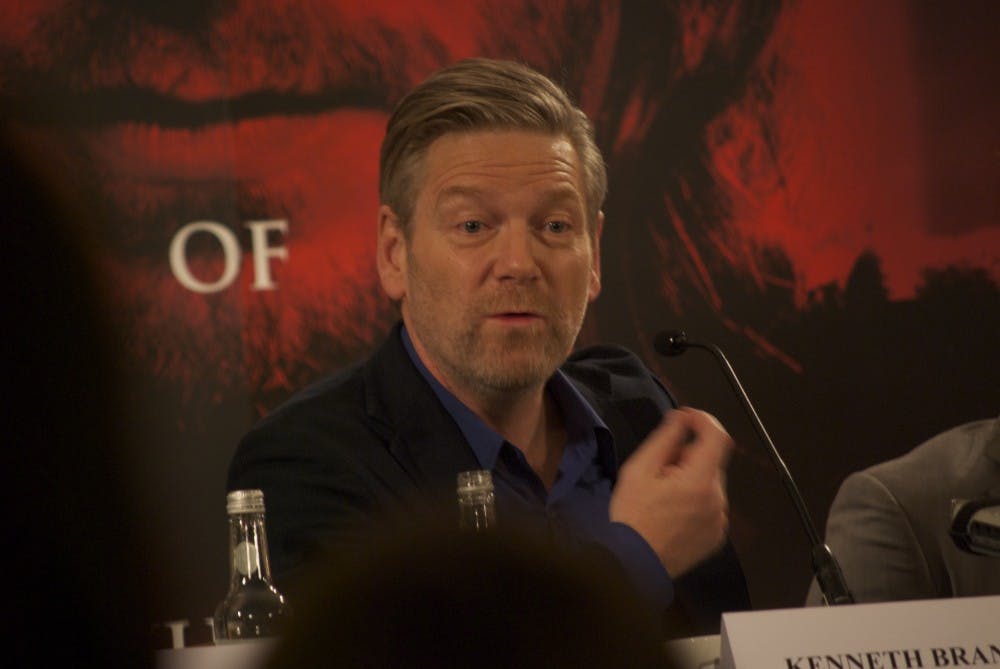At their core, murder mysteries are rarely about murders. Sure, somebody will die. There will be a crime scene and clues and a culprit, but at the end of the day, those don’t really matter.
Mysteries are about people. Without an interesting cast of suspects and, most importantly, an engaging detective, a mystery is nothing more than a crime and a solution. In order for a mystery to succeed, the audience has to feel engaged, on the edge of their seat for the entire ride.
That being said, Murder on the Orient Express has a lot going for it. It has a diverse cast of talented actors, a plot filled with revelations and secrets, and a finale that subverts all of the audience’s expectations.
Unlike many stories in the same genre, Murder is well aware that it is a mystery, allowing it to play with narrative tropes in order to keep the audience on their toes.
However, it struggles to develop its characters past their initial characterizations, making many of the deductions and plot beats seem cheap and unearned.
It also rushes through the story, especially in the final act, where attention to detail and careful storytelling are the most important. Though these decisions do not ruin the film, they definitely detract from the cohesiveness of the film.
Murder takes place shortly after World War I, as a group of 14 strangers embark on a journey aboard the titular train. From the beginning, each character is neatly slotted into an archetypal role.
To name a few: the flirty socialite (Michelle Pfeiffer), the governess (Daisy Ridley) and the doctor (Leslie Odom Jr.) in a mysterious relationship, and a gangster turned art dealer (Johnny Depp).
Of course, there’s Hercule Poirot (played by Kenneth Branagh who also directed the film), the detective whose moustache is almost as famous as his crime-solving skills.
When one of his fellow passengers is killed during the journey, Poirot is naturally called upon to take the case. His clues: a woman in a red kimono, a broken watch, and a case involving the abduction and murder of a young girl.
The cast is incredibly talented, and there is not a weak performance among the bunch; Pfeiffer and Ridley’s strong showings are of particular note. However, in part due to the number of suspects, very few of them receive any significant screen time.
When Poirot isn’t interrogating them, the cast is just sitting around and eating in silence. It is bizarre to have a cast as talented and diverse as Murder’s and not give them something more to do.
Most of the movie’s runtime is spent focusing on Poirot, a decision that both helps and hinders the film. Branagh excels during dramatic moments; when Poirot is serious, his character perfectly melds with the film’s overall aesthetic. However, he is occasionally thrust into comedic situations, which clash with the film’s serious atmosphere.
Visually, Murder is stunning. From the streets of Istanbul to the carriages of the Orient Express, every shot is incredibly well executed. The costumes are also beautiful, and every character looks distinct and unique.
Every sweep of the dining car and overhead view of the cabin evokes the film’s refined aesthetic. The victim’s corpse is shown in a single scene, long after the other passengers discover it. Furthermore, we only see it from far away, emphasizing the detachment and tranquility of the snowfall surrounding the train.
After an hour or so of investigation and interrogation, Poirot reveals his findings as he paces back and forth in front of the gathered suspects. The murder plot is incredibly inventive, and the film does an excellent job of laying it out in a tense scene.
Although the explanation is understandable, it ends up a bit rushed. Several characters have their backstories revealed and discarded in a sentence or two. Again, this is understandable due to the film’s large cast, but it undercuts the impact of the revelations.
However, despite its flaws, Murder on the Orient Express is still a very enjoyable film. Its weak spots can likely be attributed to difficulties inherent in adapting the novel to the screen.
The actors are wonderful, the plot is complex yet understandable, and every second of the film looks amazing. If it sounds interesting, I would definitely encourage you to see it, but I recommend you read the book before you go.





